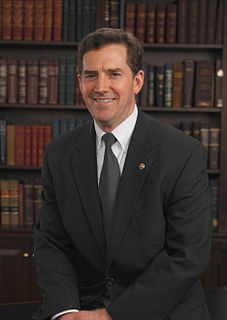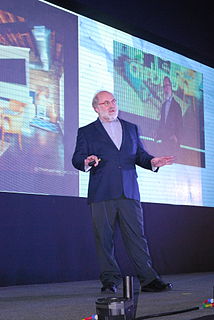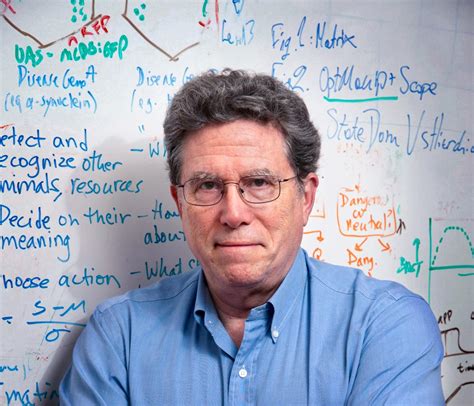A Quote by Jim DeMint
If we become too scared to confront the chief problems of our time, there is no hope of ever solving them.
Related Quotes
My hope is that design thinking becomes an innovative discipline and not just the trend of the decade. As a nation and globally, we have some of the biggest problems to solve we have ever faced. We need innovative ways to solve our problems and communicating the solutions will be paramount. Original thinking, complex problem solving, and collaboration are all important skills for our future.
Solving problems is fine, but it has gotten to the point of being a global obsession. We somehow have it in our heads that if we solve all of the problems, we can sit back and enjoy the easy life. But in reality, we become lazy and complacent. And that's when we get flooded with even bigger problems.
It may seem like sort of a waste of time to play 'World of Warcraft' with your son. But you're actually interacting with each other. You're solving problems. They may seem like simple problems, but you're solving them. You're posed with challenges that you have to overcome. You're on a quest to gain certain capabilities.
It is in the whole process of meeting and solving problems that life has meaning. Problems are the cutting edge that distinguishes between success and failure. Problems call forth our courage and our wisdom; indeed, they create our courage and our wisdom. It is only because of problems that we grow mentally and spiritually. It is through the pain of confronting and resolving problems that we learn.
Most people define learning too narrowly as mere 'problem-solving', so they focus on identifying and correcting errors in the external environment. Solving problems is important. But if learning is to persist, managers and employees must also look inward. The need to reflect critically on their own behaviour, identify the ways they often inadvertently contribute to the organisation’s problems, and then change how they act.
Consider a cow. A cow doesn't have the problem-solving skill of a chimpanzee, which has discovered how to get termites out of the ground by putting a stick into a hole. Evolution has developed the brain's ability to solve puzzles, and at the same time has produced in our brain a pleasure of solving problems.
We cannot point to a single definitive solution of any one of the problems that confront us — political, economic, social or moral, that is, having to do with the conduct of life. We are still beginners, and for that reason may hope to improve. To deride the hope of progress is the ultimate fatuity, the last word in poverty of spirit and meanness of mind. There is no need to be dismayed by the fact that we cannot yet envisage a definitive solution of our problems, a resting-place beyond which we need not try to go.

































